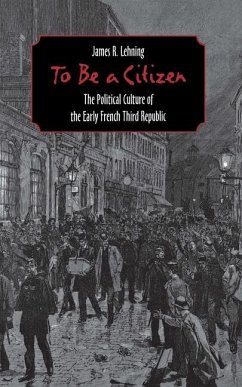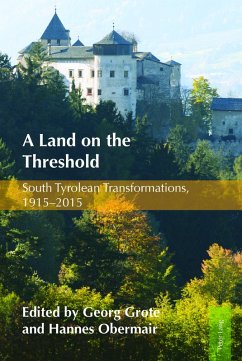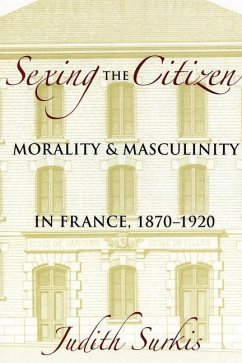
To Be a Citizen (eBook, PDF)
The Political Culture of the Early French Third Republic

PAYBACK Punkte
61 °P sammeln!
France's Third Republic confronts historians and political scientists with what seems a paradox: it is at once France's most long-lived experiment with republicanism and a regime remembered primarily for chronic instability and spectacular scandal. From its founding in the wake of France's humiliation at the hands of Prussia to its collapse in the face of the Nazi Blitzkrieg, the Third Republic struggled to consolidate the often contradictory impulses of the French revolutionary tradition into a set of stable democratic institutions.To Be a Citizen is not an institutional history of the regime...
France's Third Republic confronts historians and political scientists with what seems a paradox: it is at once France's most long-lived experiment with republicanism and a regime remembered primarily for chronic instability and spectacular scandal. From its founding in the wake of France's humiliation at the hands of Prussia to its collapse in the face of the Nazi Blitzkrieg, the Third Republic struggled to consolidate the often contradictory impulses of the French revolutionary tradition into a set of stable democratic institutions.
To Be a Citizen is not an institutional history of the regime, but an exploration of the political culture gradually formed by the moderate republicans who steered it. In James R. Lehning's view, that culture was forced to reconcile conflicting views of the degree of citizen participation a republican form of government should embrace. The moderate republicans called upon the entire nation to act as citizens of the Republic even as they limited the ability of many, including women, Catholics, and immigrants, to assume this identity and to participate in political life. This participation, based on universal male suffrage alone, was at odds with the notion of universal citizenship-the tradition of direct democracy as expressed in 1789, 1793, 1830, and 1848.
Lehning examines a series of events and issues that reveal both the tensions within the republican tradition and the regime's success. It forged a political culture that supported the moderate republican synthesis and blunted the ideal of direct democracy. To Be a Citizen not only does much to illuminate an important chapter in the history of modern France, but also helps the reader understand the dilemmas that arise as political elites attempt to accommodate a range of citizens within ostensibly democratic systems.
To Be a Citizen is not an institutional history of the regime, but an exploration of the political culture gradually formed by the moderate republicans who steered it. In James R. Lehning's view, that culture was forced to reconcile conflicting views of the degree of citizen participation a republican form of government should embrace. The moderate republicans called upon the entire nation to act as citizens of the Republic even as they limited the ability of many, including women, Catholics, and immigrants, to assume this identity and to participate in political life. This participation, based on universal male suffrage alone, was at odds with the notion of universal citizenship-the tradition of direct democracy as expressed in 1789, 1793, 1830, and 1848.
Lehning examines a series of events and issues that reveal both the tensions within the republican tradition and the regime's success. It forged a political culture that supported the moderate republican synthesis and blunted the ideal of direct democracy. To Be a Citizen not only does much to illuminate an important chapter in the history of modern France, but also helps the reader understand the dilemmas that arise as political elites attempt to accommodate a range of citizens within ostensibly democratic systems.
Dieser Download kann aus rechtlichen Gründen nur mit Rechnungsadresse in A, D ausgeliefert werden.













